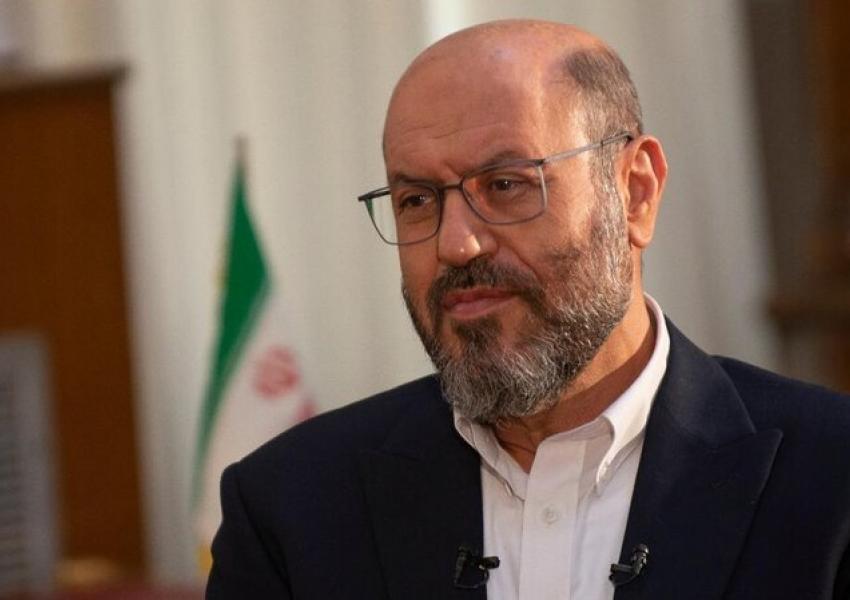
Likely Presidential Candidate Rules Out Discussing Iran’s Missiles
Hossein Dehghan, former Iranian defense minister and declared candidate in June’s presidential election, has warned against including Iran’s ballistic missiles in any talks over its nuclear program. While this reiterates Tehran’s official position, Dehghan, a once active Revolutionary Guards (IRGC) commander and now an advisor to the Supreme Leader, reflected themes being pushed by Iran’s principlists against President Hassan Rouhani, who has identified “opportunities” for Iran under United States President-elect Joe Biden.
In an interview with the Associated Press, Dehghan, 63, said that an American attack on Iran in the expiring days of the Trump administration could set off a “full-fledged war” in the Middle East. “We don't welcome a crisis,” Dehghan said. “We don’t welcome war. We are not after starting a war. But we are not after negotiations for the sake of negotiations either.”
Calling himself as a “nationalist” of “no conventional political tendency,” Dehghan insisted that Iran’s ballistic missiles served as a “deterrent” and should not be included in any negotiations with world powers.
Iran developed a missile program because its air-force, built up under the Shah before 1979, is antiquated and far inferior to many of its neighbors, including Gulf Arab states with state-of-the-art US-made jets. But propaganda acclaiming Iran’s missile program has stepped up in recent weeks, including the Tehran Times splashing a map of Iran’s missile ranges with red stars marking American regional bases. The ever-expanding missile program has regional countries worried, especially after the suspected Iranian attack on Saudi oil installation in September 2019.
“The Islamic Republic of Iran will not negotiate its defensive power ... with anybody under any circumstances,” Dehghan told AP. “Missiles are a symbol of the massive potential that is in our experts, young people and industrial centers.”
Both Rouhani and Mohammad Javad Zarif, the foreign minister, have suggested that a return of both the US and Iran to the 2015 nuclear agreement – which President Donald Trump left in 2018, prompting Iran to exceed the deal’s nuclear limits – would be relatively straightforward. Biden published an article in September saying that if Iran returned to “strict compliance with the nuclear deal,” the US “would rejoin the agreement as a starting point for follow-on negotiations.”
Other voices in the US, including some close to Biden, have suggested that the deal, known as the JCPOA (Joint Comprehensive Plan of Action), might expand to include other issues, including Iran’s missile program. The other JCPOA signatories - three European countries plus Russia and China - all uphold the original JCPOA understanding that the nuclear program be dealt with separately.
But the so-called ‘E3’ of Britain, France and Germany do share US concerns over Iranian missiles, and German foreign minister Heiko Mass recently suggested Berlin was open to discussions with the US as to how best to proceed.
Dehghan as president might seem an unwelcome prospect for Western countries seeking diplomatic progress. His service as an IGRC commander in Lebanon and Syria 1982-4 covered the October 1983 bomb attacks in Beirut that killed 241 American and 58 French troops.
In his AP interview, Dehghan insisted that Iran continued to seek the withdrawal of all US forces from the region in revenge for the US killing Iranian general Qasem Soleimani in Baghdad in January. Dehghan described Iran’s retaliatory missile strikes on US troops in Iraq, leaving dozens with serious head injuries, as an “initial slap.”
Dehghan warned Israel that expanding its regional presence, following normalization agreements with the UAE and Bahrain in August and September, could become a “strategic mistake.” The Jewish state, he said, was “opening an extensive front…Just imagine every Israeli in any military base can be a target for groups who are opposed to Israel.”





